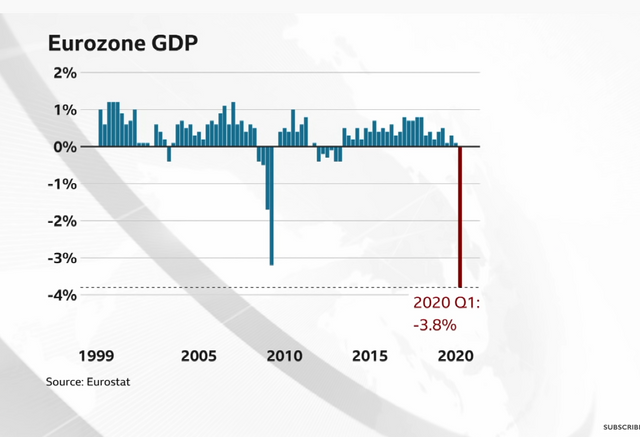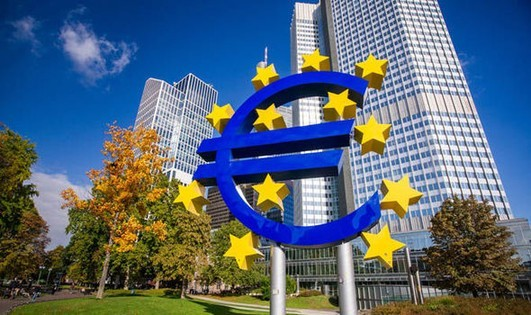Pandemic Impact on the economy
The spread of the coronavirus has impacted the market as we have seen the global economy drastically dipping down, particularly top indexed Dow Jones Industrial Average, S&P500, CAC40, and other major indexes in the world.
Supply chains have started the have difficulties in delivering their products that will lead to massive disruption. As shout-down for large factories will have a vital effect on the production and the economies, this is causing a ripple through effects around the world as all supply chains are strongly connected.
On the other hand, we have seen the geopolitical war between Russia and Saudi Arabia, in terms of oil production as the market is flooded with a supply for no demand in the cause of the pandemic situation as many airplanes companies, factories, production, and other oil consumptions has declined dramatically. This creates an inequality in the market between demand and supply as producers keep flooding the market with millions of gallons of oil with no demand.
The Impact on Global Gross domestic product (GDP)
Concerns around coronavirus lead investors to feel the heat. Fear is spreading and more speculation has occurred, the In Mid-March 2020, the US stock market faced it’s the worst week since the global financial crises of 2008. The US and the Canadian central banks have cut interest rates by half a percentage point after seeing the increase in economic failure concerns.
The uncertainty of the nature of this pandemic has pushed more fear in the market, as the economy is slowing due to the lock-down and sharp decline in the total demands of goods and services. Therefore, the global GDP is expected to decline in 2020.
As Manager Director of the International Monetary Fund Kristalina Georgieva in one of the press briefing recently said, I quote:
"What we are wrestling with, is uncertainty and that defines our projections which at this point lead us to state the global growth in 2020 will dip below its last year’s levels, but how far it will fall, and how long the impact would be is still difficult to predict." 4 March 2020 ("IMF and World Bank COVID-19 Press Briefing", 2020)
Events are changing in a rapid way that makes the prediction of GDPs even more difficult than before. As uncertainty still dominating with no time frame for the exact date for the economy to operate normally, and borders to be open again between countries for airplanes companies, export/import, and corporation to be back in business.
The European Union one of the largest economies says by its speaker Christine Lagarde that the economy dropped at the sharpest speed on record in the first quarter.

Figure above shows the GDP Chart in Eurozone, Source: Eurostat ("National accounts and GDP - Statistics Explained", 2020)
The GDP of all countries who are using the EURO between Jan and March there was a contraction of 3.8%, even worse than during the financial crisis of 2008.
France recorded it's worst economic slowdown since the second world war. And the head of the European central bank says that how much worse the damage gets depends on how countries maintain their virus lockdowns.
The president of the European Central Bank Christine Lagarde declares that within the high uncertainty circling the ultimate extent of the economic fallout.
Growth expectations given by ECB, suggest that the EURO area GDP could drop between 5 and 12% this year. Depending significantly on the period of the containment measures and the success of policies to mitigate the financial results for corporations and workers.
European central bank Intervention

The European central bank is considering the central bank for the euro and administers monetary policy within the Eurozone has announced in mid-March 2020 his plans to buy an extra 750 Billion euro of bonds and no limits, to defend the Eurozone in response to the critical financial situation that caused by the pandemic.
This decision has directly affected the market as bond prices start covering after an intense decline caused by fear from investors selling their assets. The ECB announced by the name of its president Christine Lagarde that the commitment to the euro will have no limits and that the ECB will optimize all its tools to support the situation. And she considers that this exceptional situation needs and exceptional actions.
The ECB expanded the purchase of non-financial commercial paper, as it allows banks to raise capital more of their assets. We have seen the yield of Italian 10-years bonds is dropping massively as this speaks fears between investors. On the other side, French President Emmanuel Macron, has shown his support for the ECB and its significant measures.
ECB has raised the limit for buying eligible sovereign bonds of any country, as it had limits to third before. They are doing all this intervention to protect the market and not leading to a genuine financial crises and the ECB is supporting by quantitative easing monetary policy that could affect the market in the long run. The US Federal Reserve and the Bank of England have announced more steps to protect their economies by adding liquidity to the financial market.
**
The situation will remain for a longer period of time, although we have seen the market starts it's recovery patterns but the economy and fundamental numbers from companies shows a different path. In this case, we can clearly notice that the economy is pushed from the federal reserve and the market shows different numbers that the actual economy.
Therefore, the market could not have priced in the impact of unemployment and a decrease in the global GDP. In this case, we might see another market drop that will last for a longer time than would not recover before 2021.
**
Covid did nothing to the economy.
Over reaction and tyranny killed the economy.
The COVID situation was the catalyzer. It pushed the market further down, and currently, it seems the market is detached from reality.
Hoping to not see another panic as the market priced in.